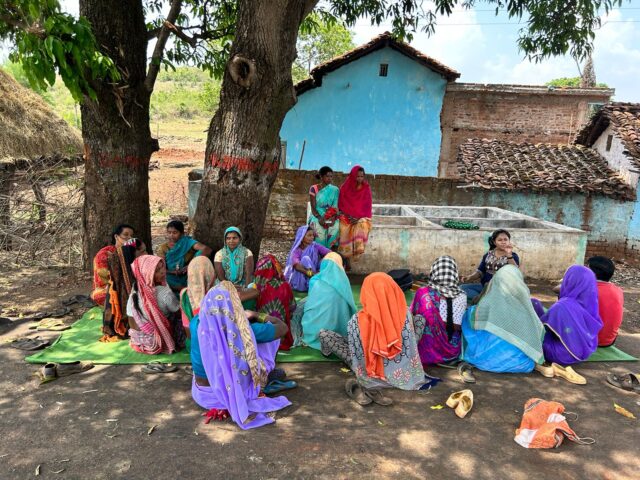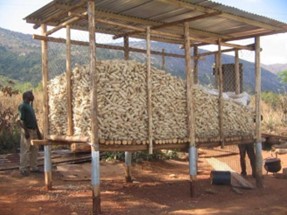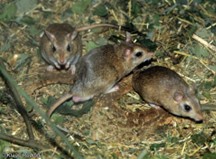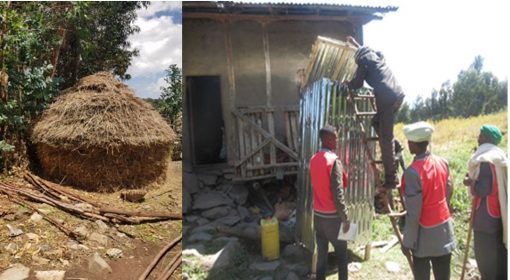By Anushree Mitra and Meghna Mukherjee
Introduction: Severity of rodent damage
Picture this: you meticulously save your hard-earned money, stashing it away securely for unforeseen circumstances. Yet, when the time comes to retrieve those funds, you find them destroyed by a horde of rats. This unfortunate tale befell Indravati Didi, a resident of the serene village of Dudhera in Madhya Pradesh, India. The rats devoured every last rupee, leaving her helpless and devastated. Sadly, this story echoes across India, where billions of rupees’ worth of agricultural produce fall prey to these cunning creatures annually. Not only do they ravage crops in the fields, but they also inflict substantial damage upon stored goods. Despite the efforts of communities in Madhya Pradesh and Jharkhand, the rats pose an ongoing challenge to the lives and livelihood of communities in these areas.
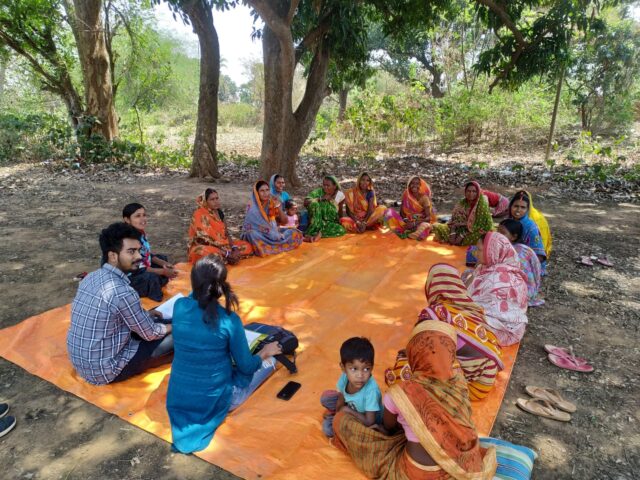
Addressing the Problem: Involving women in rodent management practices
The women of Madhya Pradesh and Jharkhand have been fighting against rat infestation since a long time and emerged as champions of innovation. They continuously strive to develop ingenious techniques to safeguard their agricultural produce. For eg, they keep thorny plants on top of the storage units to make it difficult for rats to access it. Another interesting approach is to mix cow dung in a drum of water and keeping it inside the storage units. The rats suffocate and drown if they jump into this. They also implement the smoking burrow method where they blow smoke into a burrow and close all other holes nearby. This suffocates the rats and forces them outside the burrows. As soon as the rats come out, they kill the rats.
Alas, the rats prove themselves to be cunning adversaries, perpetuating an unending struggle to keep them at bay. Indravati Didi’s heart breaking loss of 36,000 INR, equivalent to 410 Euros, serves as a poignant example. For the inhabitants of remote villages in Madhya Pradesh, this substantial sum could have alleviated financial burdens in times of crisis. However, the relentless rodents devoured her hard-earned savings, leaving her in helpless situation. The plight of Indravati Didi epitomizes the dire need for effective solutions to combat the relentless rat menace and protect the livelihoods of those living in vulnerable agricultural communities.
Effective rodent management is essential for sustainable agriculture and the well-being of farming communities. However, addressing this issue goes beyond the technical aspects; it must also consider gender-related challenges faced by women farmers.
Women often bear a disproportionate burden in agricultural labor while also managing livestock and household responsibilities. In many regions, they are the primary caregivers for children and elderly family members. The interventions of various government agencies, NGO’s who primarily work with women also has added to the above stated responsibilities. All of this leaves the women farmers with very limited time and resources to dedicate to rodent control. For eg, a vital part of effective rodent management is to keep your homestead lands and field clean. This means no leftover crop residues in the fields, breaking all rat burrows, keeping the harbourage near the homestead clean, effective waste management, etc. As one can see all of this lead up to an insurmountable amount of work for the women farmers alone.
In the villages of these tribal belts, we have seen hunting rats and then playing with the dead rats are a fun pastime for the children in the village. Rats vector 60 different kinds of diseases. This is extremely alarming for these communities as they do not have access to proper healthcare and this is an additional financial burden on them. As far as the social norms go, if a woman fails to take good care of her children, she is a ‘bad mother.’
Another extremely important point to be considered is food and nutritional security. Women are the most affected when it comes to food security. More often than not we see the women in the villages sacrificing the best part of the food to their husbands and children, often getting almost nothing to eat at the end. Rats destroy the agricultural yields often resulting to a food shortage throughout the year. And the women always face the brunt of that since their needs are always considered the ‘least.’
Empowering women in rodent management is vital to ensure their active participation and to enhance the effectiveness of strategies. Bridging knowledge gaps and creating awareness is the starting point of any intervention. Although the rodent issues create a lot of losses and suffering, a lot of times this takes a backseat in people’s mindsets. This has happened over years of helplessness against the clever rats leading to normalization. Via various training sessions on facts about rodents, their behaviour, activities; we have managed to enhance their already rich knowledge about rodents and created awareness. We have deployed several other measures like distribution of rat traps, species identification, distribution of airtight hermetic bags for food storage, etc which have been slowly working against the threat of rats.
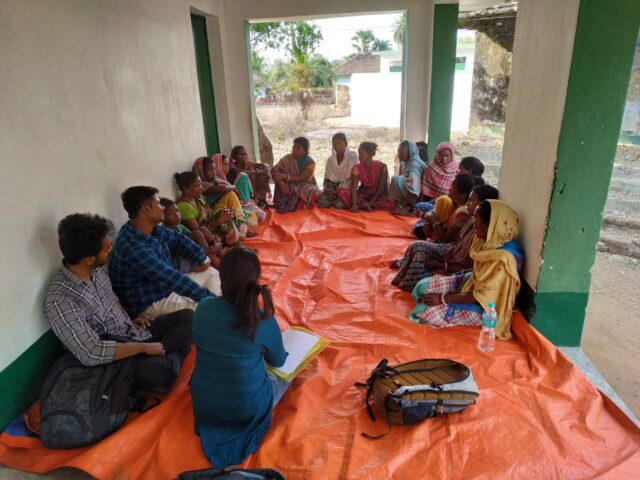
Moving ahead: The way to go
The primary objective of effective rodent management is not to eliminate rats entirely, as they play a vital role in our ecosystem. However, the goal is to maintain rat populations at manageable levels to minimize losses and mitigate the negative impacts they can have. By implementing comprehensive rodent management strategies, we can strike a balance that allows for the preservation of the ecosystem while minimizing the damage caused by rodents. Accessible training programs, providing resources, and promoting women’s leadership, we can create an inclusive approach that empowers women farmers to tackle the rodent menace and foster agricultural sustainability in their communities.
